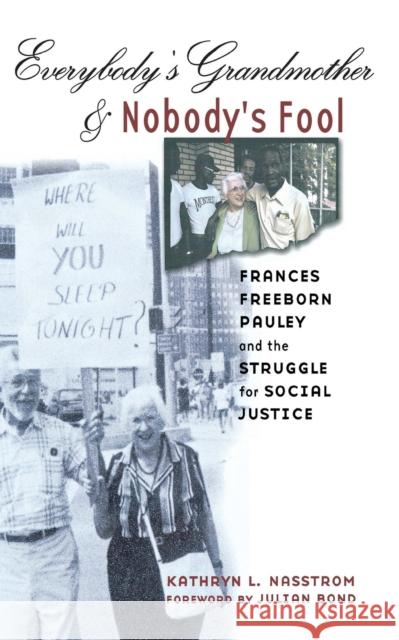Everybody's Grandmother and Nobody's Fool » książka
Everybody's Grandmother and Nobody's Fool
ISBN-13: 9780801437823 / Angielski / Twarda / 2000 / 240 str.
Frances Freeborn Pauley, a white woman who grew up in the segregated South, has devoted most of her ninety-four years to the battle against discrimination and prejudice. A champion of civil rights and racial justice and an advocate for the poor and disenfranchised, Pauley's tenacity as an activist and the length of her career are remarkable. She is also a consummate storyteller; for decades, she has shared her words with activists, students, and scholars who have found their way to her door.Kathryn L. Nasstrom uses rich oral history material, recorded by herself and others, to present Frances Pauley in her own words. Pauley's life has encompassed much of the last century of extraordinary social change in the South, a life touching and touched by famous figures from southern politics and the civil rights movement. Highlights of Pauley's career in the public eye include a friendship with Reverend Martin Luther King, Jr. and Coretta Scott King, encounters with several of Georgia's civil-rights-era governors, and a meeting with Eleanor Roosevelt. A skillful political organizer, Pauley was involved in decades of community mobilization, repeated efforts to educate politicians and the public about the origins and nature of poverty, and lobbying for unpopular causes. "People are born into a certain way of living," she says. "It takes a jolt to get out of it. It doesn't really mean that they're all that mean and bad, but it takes a jolt to make them see that maybe they could make a change."In a deft blend of biography and memoir, Nasstrom explains Pauley's historical significance and places her story in the context of developments in Georgia politics and the civil rights movement. Even as it contributes to the political history of Georgia and the South, affording insight of unusual depth on familiar issues and events, the book preserves one woman's story in the still largely undocumented history of southern women's social and political activism in the twentieth century. Pauley's experiences serve as a window on the lives of all those women and men who, town by town and state by state, made momentous change not only possible but also inescapable.











